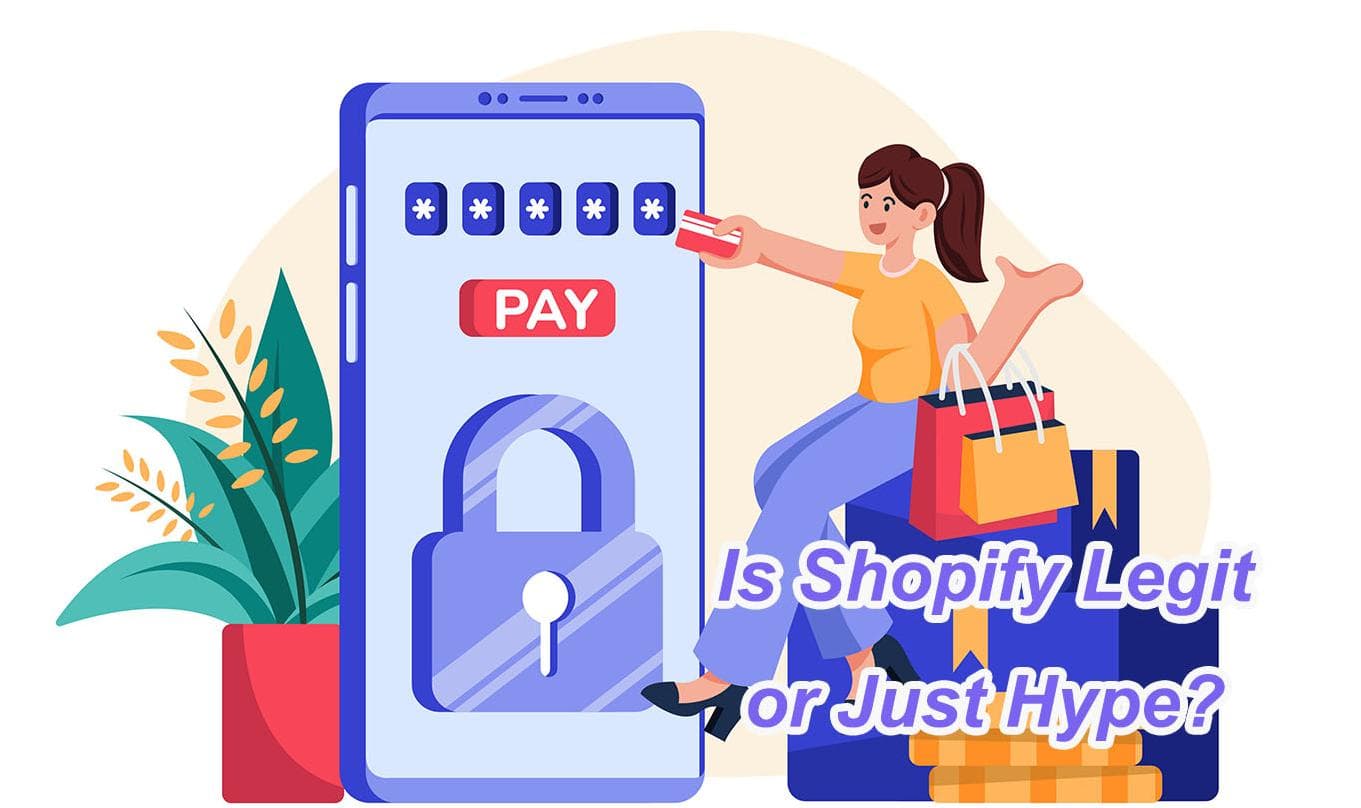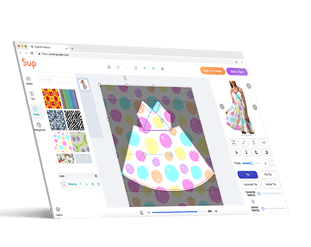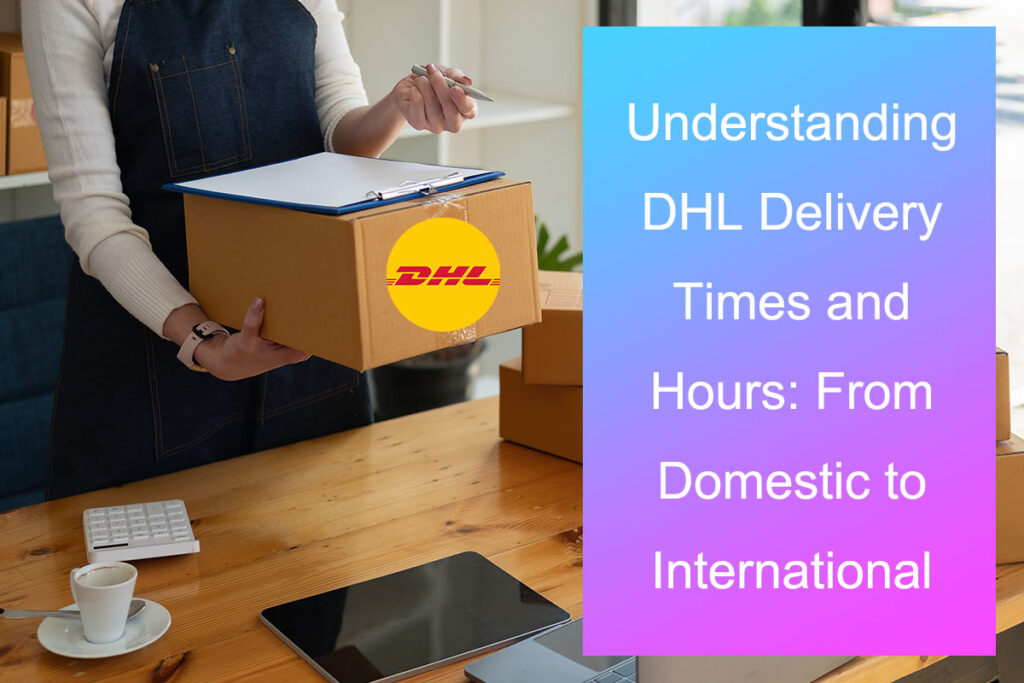Is Shopify Legit or Just Hype? An Honest Look for Beginners
If you’re thinking about starting your own online business, there are tons of platforms to choose from. One name you’ve probably heard a lot is Shopify—influencers, YouTubers, and even TikTokers keep recommending it. But if you’re new, it’s normal to have some doubts. Is Shopify actually legit? Can I trust it with my money and time?
In this post, we’ll break it all down—whether it’s safe and what to watch out for so you can start your online store with confidence.

5 Reasons Why Shopify Is Legit
Shopify started in 2006 and is based in Canada. It’s listed on the stock markets in the U.S. and Canada, so its business is watched by investors and follows strict rules. Just from that, you can already tell that Shopify is a real and trustworthy company.
Still asking “Is Shopify legit?” Here are five clear reasons why the answer is yes.
1. Big Brands and Millions of Sellers Use Shopify
If you’re wondering “Is Shopify legit?”—just take a look at how many people use it.
Shopify is one of the most popular online store platforms in the world. Right now, there are more than 2.5 million active stores using it. In just one quarter of 2024, Shopify made around $828 million in profit. In total, people bought over $292 billion worth of products through Shopify that year. That means a lot of people trust it—both buyers and sellers.
And it’s not just small sellers who rely on Shopify. Well-known brands like Tesla, Gymshark, Kylie Cosmetics, and Red Bull all use Shopify to power their official websites. These companies have a lot to lose if a platform isn’t reliable. They wouldn’t take that kind of risk.
So when someone asks, “Is Shopify legit?”—this is solid proof. The numbers, the brands, and the public trust all say one thing:
Yes, Shopify is a legitimate and trusted eCommerce platform.

2. Shopify Provides a Secure Selling Platform
One of the most important signs that Shopify is legit is its strong focus on security. When you build your online store with Shopify, you’re backed by layers of protection that help keep your business—and your customers—safe. Here’s how:
SSL certification
Shopify gives every store SSL certification by default. This means your website uses HTTPS encryption, which protects personal info like passwords and credit card numbers from hackers. If you’ve ever seen a little padlock icon next to a website’s URL—that’s SSL at work. Without it, browsers may warn that a site is “Not Secure.” Shopify handles this automatically, so sellers don’t need to worry about setting it up themselves.

PCI compliant
The Payment Card Industry Data Security Standard (PCI DSS) is a global rule made by major credit card companies like Visa, Mastercard, and American Express. Only platforms that pass this rule are allowed to handle credit card payments safely.
Shopify has passed this rule and is even Level 1 PCI DSS compliant, which is the highest level. This shows Shopify takes seller and customer safety very seriously. Just like SSL certificates, every Shopify store is PCI compliant by default, so sellers don’t need to set it up themselves.
SOC 2 & SOC 3 Certified
Shopify has passed SOC 2 Type II and SOC 3 audits, which are third-party evaluations of how well a company protects data and keeps its services running reliably. It’s like a safety checkup for the entire system. For sellers, this means Shopify’s servers are trustworthy—your store is less likely to go down or lose customer data.
Built-in Fraud Protection
Shopify also has tools to protect your store from scams and fraud. These tools help lower the risk of fake orders or chargebacks. Here’s what they include:
- Fraud analysis: Helps you see if an order might be fake
- Shopify Protect: Covers eligible orders from fake chargebacks
- Shopify Flow: Lets you set rules to decide which orders to accept
- Dynamic 3DS: Adds extra ID checks to stop stolen cards
- Card testing protection: Blocks people from testing stolen credit cards at checkout
- Proxy detection: Flags shoppers using fake IP addresses
All of this shows that Shopify doesn’t just talk about security—it builds it into the platform.
3. Shopify Payments Ensures Safe Transactions

Another reason why Shopify is legit is that it comes with its own secure and easy-to-use payment system—Shopify Payments. Unlike third-party payment providers, Shopify Payments is fully built into the platform, which means you don’t need to set up external gateways like PayPal or Stripe unless you want to.
One major benefit? No extra transaction fees when you use Shopify Payments. That means more of your earnings stay in your pocket. It also supports a wide range of payment methods like credit cards, Apple Pay, Google Pay, and more—giving your customers flexibility at checkout and making transactions smoother.
Because Shopify Payments is directly connected to your Shopify account, you can get paid faster without waiting days or weeks for withdrawals to process.
Even better—if a customer disputes a charge, Shopify can automatically submit evidence for you in many cases. This streamlines the process and saves you time.
In short, Shopify Payments makes transactions fast, flexible, and secure—another reason sellers trust Shopify as a legitimate and reliable eCommerce platform.
4. Transparent Pricing with No Hidden Fees

Now let’s take a look at how clearly Shopify lists its pricing.
Shopify offers several plans—Basic, Shopify, Advanced, and Plus—with each one clearly showing what it includes and how much it costs. The prices are easy to understand, and there are no sneaky fine-print fees. You can choose to pay monthly or annually, depending on your needs and budget.
Not sure if it’s right for you? No problem. Shopify also offers a 3-day free trial, so you can try it out before paying anything.
When it comes to transaction fees, Shopify is just as open. For example, with the Basic plan, the credit card rate starts at 2.2%. If you decide to use third-party payment providers like PayPal or Stripe, there’s a fixed 2% additional fee. But as we mentioned earlier, if you stick with Shopify Payments, you won’t pay any extra transaction fees at all.
What about extras like themes or domain names? Shopify lists those prices upfront, too. They’re completely optional—you only pay for what you actually want. No surprise charges, ever.
5. 24/7 Customer Support and Active Community

Another reason why people trust Shopify is because it offers 24/7 customer support. No matter what time it is, you can reach out through live chat, email, or even phone if you run into issues. This kind of round-the-clock support gives sellers peace of mind, especially when running an online business that never sleeps.
In addition to official support, Shopify also has a huge online community where sellers can ask questions, share experiences, and help each other. You can search for existing threads with answers to your problem, or start a new one if you can’t find what you need.
There are also active Facebook groups and Reddit forums where Shopify merchants hang out. These places are full of tips, real stories, and honest advice from fellow sellers.
5 Shopify Scams Every New Seller Should Watch Out For

Shopify is a legit and safe platform—but that doesn’t mean every person on it is. Like any online marketplace, there are always a few bad actors trying to take advantage of new sellers. Some might copy your site, send fake orders, or even trick you into giving away your login details.
To help you stay one step ahead, here are 5 common Shopify scams new sellers should watch out for—and how to avoid getting caught.
1. Fake Shopify Stores Selling Low-Quality or No Products
One of the most common scams on Shopify is store cloning. Scammers set up fake stores that copy the exact design, logo, and product descriptions from legitimate businesses. These fraudulent stores often sell cheap knockoffs—or worse, they take the customer’s money and never ship anything.
While this mainly hurts consumers, it can also harm you as a seller:
- You may see your brand reputation damaged if customers confuse your store with the fake one.
- Competitors may steal your product photos or listings, making it harder for buyers to trust your store.
- It creates more chargebacks and complaints across the platform, tightening rules that affect all sellers.
How to protect yourself:
- Regularly Google your brand name and check for imposters
- Report fraudulent stores to Shopify’s Trust & Safety team
- Consider using brand monitoring tools to track unauthorized use of your assets
2. Fake Suppliers or Dropshipping Agents Promising Fast Fulfillment
As a seller, especially in dropshipping, choosing the right supplier is crucial. But scammers know this too. Some pretend to be professional agents or wholesale suppliers, offering unrealistically fast shipping, premium packaging, or access to “exclusive” factories—only to disappear after getting paid, or deliver poor-quality goods that ruin your store’s reviews.
Other times, they may fake shipping tracking numbers, delay your fulfillment endlessly, or avoid communication altogether. Once the damage is done, your customers blame you, not the agent.
How to protect yourself:
- Never rely on screenshots or promises—ask for real product samples and test order fulfillment
- Start with small order quantities to verify product quality and delivery speed
- Avoid agents with no traceable history or no verifiable contact info
Pro tip:
Working with a trusted service like Sup Dropshipping helps you avoid these scams. We carefully vet suppliers, offer order tracking, branded packaging, and local warehouse options, and ensure consistent communication throughout the fulfillment process—so you’re not left guessing or explaining to angry customers.

3. Scammy Third-Party Apps That Steal Your Data or Charge Hidden Fees
Shopify’s App Store offers thousands of tools for marketing, analytics, fulfillment, and more. However, not all third-party apps are created equal. Some are created by bad actors who misuse app permissions, harvest your customer data, inject malicious code, or charge unexpected recurring fees.
Red flags include:
- Apps requesting more access than necessary, like full customer data or store control
- Poor or fake reviews that sound too generic or overly positive
- No clear privacy policy or terms of service
How to protect yourself:
- Stick to apps from the official Shopify App Store with good ratings and reviews
- Read the fine print—check if the app asks for unnecessary permissions
- Monitor your billing regularly to catch unexpected charges early
4. Phishing Emails or Fake Shopify Login Pages Targeting Sellers

You might receive what looks like a real email from Shopify—complete with logos and links—warning about a security issue or asking you to verify your account. But these are often phishing attempts designed to steal your Shopify login credentials.
Once scammers have access, they can:
- Change your store settings
- Divert your payments to another bank account
- Lock you out completely and demand ransom for your store access
How to protect yourself:
- Always check the sender’s email domain
- Never log in through links in suspicious emails—go directly to Shopify.com
- Turn on two-factor authentication to add an extra layer of protection
5. Fake Orders or Refund Abuse from Fraudulent Customers
Unfortunately, not all scams come from outside your store. Some “customers” place fake orders using stolen credit cards, only to issue chargebacks days later. Others may claim they never received a product, even if it was delivered, and demand refunds.
In dropshipping, this hits you doubly hard—you’ve already paid your supplier, and now you lose the product and the money.
Common signs of fraudulent orders:
- High-value orders from new customers using unusual email addresses
- Orders with multiple units of a single product
- Shipping addresses that don’t match the cardholder’s location
How to protect yourself:
- Use Shopify’s built-in fraud analysis to spot risky orders
- Enable signature confirmation for high-ticket deliveries
- Set a clear return/refund policy to protect against abuse
FAQ about Shopify
1. Is Shopify safe?
Yes, Shopify is safe to use. All stores come with SSL to protect your info and customer data. It’s also PCI compliant, which means it follows strict rules for handling payments. Plus, Shopify has built-in tools to stop fraud. So if you’re selling or shopping, the platform has your back.
2. What are the disadvantages of Shopify?
Shopify is great, but it’s not perfect. You need to pay a monthly fee, and some apps or themes cost extra. Also, if you don’t use Shopify Payments, they charge extra transaction fees. It’s easy to use at first, but as your store grows, you might need more tech skills or paid help.
3. Will Shopify refund me if I get scammed?
If you’re a buyer and get scammed, Shopify doesn’t directly give refunds. But they can help you contact the store or guide you to ask your bank for a chargeback. If you’re a seller and face fraud, Shopify has tools like Shopify Protect to cover certain chargebacks on eligible orders.
4. Can I actually make money from Shopify?
Yes, but it’s not automatic. You need a good product, a solid plan, and real effort. Some people earn a full-time income, while others don’t make much. Shopify gives you the tools, but how much you earn depends on how well you run your store and market it.
Is Shopify legit——Final Though
At the end of the day, Shopify is a legit and trusted platform used by millions of sellers around the world. It’s safe, easy to use, and packed with features to help you grow your online business.
That said, no matter how secure a platform is, scammers are always out there trying to take advantage of new sellers. So while Shopify gives you the tools to succeed, staying alert is just as important.
Do your research, set up smart protections, and if you want a reliable dropshipping partner—Sup Dropshipping is here to help with secure fulfillment, trusted suppliers, and peace of mind.
About the Author

May
May is a blogger at Sup Dropshipping with over 5 years of experience in eCommerce. May’s passion for eCommerce drives her to stay updated on the latest trends and share her expertise with you through her blog. In her spare time, she likes to read a novel or chat with friends.





Leave a Reply